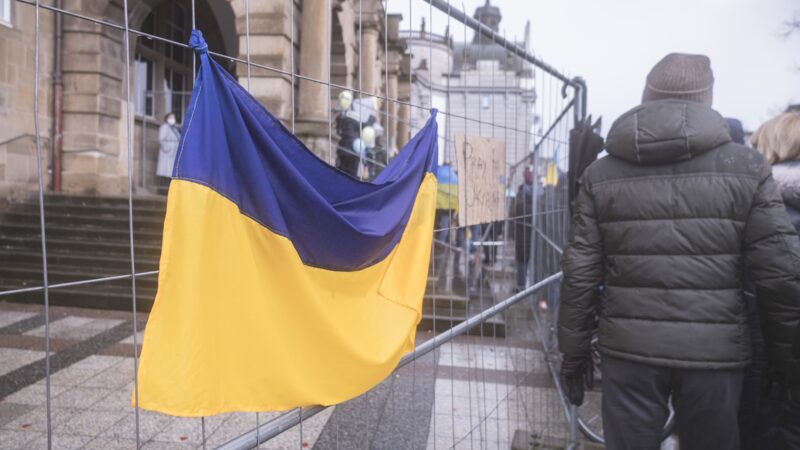Are you sure? Are you absolutely sure that Keir Starmer is definitely the Prime Minister?
It wouldn’t be unusual if he isn’t. Does anyone even remember who Joe Biden is? And he’s supposed to be way more important.
It doesn’t really feel like Keir Starmer is the Prime Minister, does it? Maybe Esther Rantzen (who?) is the Prime Minister? Better do what she says. Promises were made, after all. Is Keir Starmer even sure he’s the Prime Minister? July, September, October. What a silly hostage.
OK. Enough of that.
Does he even really want to be the Prime Minister?
Whether it’s the debacle of sending Labour staff to campaign in the US, or the free gear, or obviously nepotistic appointments, there’s only one excuse he ever gives. Don’t blame me, it may look really corrupt, but it’s still just about within the rules. The rules run things, not ol’ Keir Starmer. Not responsible. The rules are. Got it. Maybe they’re the PM?
The failure to treat governing seriously is just another sign that these people are student politicians. They like the idea of governing, of being in office but not necessarily in power. They like the trappings, the pomp, the mincing about, and the throbbery but are they actually interested in the real substance of governing?
You will continue to get shallow “leaders” until the consequences match the severity of their civilisational level failures.
And they are at a civilisational level.
Another way of wriggling out of being Prime Minister is to give away all the land over which you’re supposed to govern. Bye bye, British Indian Ocean Territory. Yes, yes, overseas territory, short term lease, etc. cut the midwittery. The grug-brain/genius unity here is the unambiguous surrender of territory, which is bad.
Giving away the country is surely a sure sign that he doesn’t want to govern it?
Reparations? Don’t believe him when he says it’s not happening. Why sign to the commitment to discuss it at all, as if it’s even remotely reasonable, at the Commonwealth leaders meet up? Giving away land, giving away money. Is this what all the imminent tax increases in the budget are going toward? What is he going to entertain giving away next?
An aside, why is our government about to increase taxes to give it away to foreigners, while the likely next President in the US is promising to tax foreigners and abolish their income tax? Why can’t we have that?
Never mind Keir Starmer. And speaking of the Caribbean, does the cabinet want to want to govern this country either? Or are they more interested foreign interests as far and wide as the Caribbean, Africa, Eastern Europe, and the Middle East? What is in Britain’s interests? If you want to be a minister in a British government, shouldn’t you be totally beyond reproach? Why are otherwise obvious questions around conflicts of interest, such as dual nationality, not at all concerning? If free gear is enough to cast suspicion, why isn’t the protection, kinship, and privileges of a whole other country not even more suspicious? There are levels of security clearance you’re not allowed to hold if you have dual nationality, but you can still govern? Whose side are you on?
If they really wanted to govern, why didn’t they prepare for it?
Why do virtually no politicians spend any time honing the skills needed for executive decision making, administration, structuring, oversight, team-building, etc. etc. etc.? In what other professional walk of life would you expect to get to the top by merely being old enough, without criminal record (for at least 5 years), filing some paperwork, being gobby on TV, and winning a popularity contest among people who are also not qualified?
Does this look like a government? This post is slightly out of date, but close enough.
Really, it’s worse than this. As this is being written, the budget is coming up in a couple of days. The Chancellor of the Exchequer is in fact not even close to being a junior banking analyst. She is not an economist (anyone can call themselves an economist – the dismal science indeed), she lied about being any sort of chess champion, and it looks like the book she wrote was plagiarised.
Is it any wonder this sort of person is focussed on small and petty things like the gender of people in portraits? There’s no intelligence or imagination or frame of reference there for great acts of statesmanship.
There is only itty-bitty titties and a bob.
If you don’t want to be talked down to, Rachel, don’t lower yourself so. Or become genuinely great.
In the meantime, readers, you are governed by inadequates, by middle managers.
If they wanted to govern, they would have spent the time and effort to become capable of governing.
Let that be a warning to you too, readers, you cannot just be gobby on GB News or assorted podcasts. I see you. Sure, Kemi Badenoch is a flop, but Robert Jenrick? What are you doing? Have some self-respect!
Do you even want to govern?
Anyway, with all that, just look at the state of Labour.
Is Keir Starmer even going to last until 2029?



